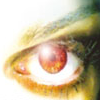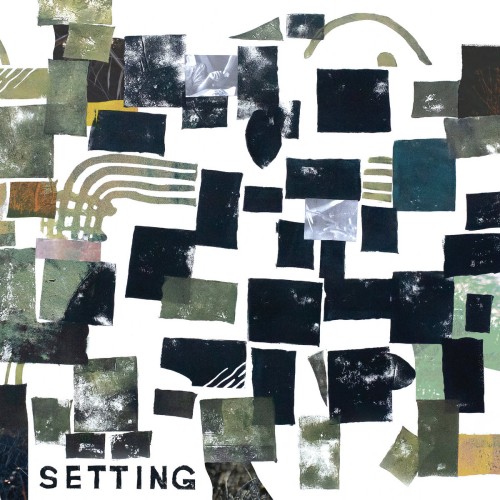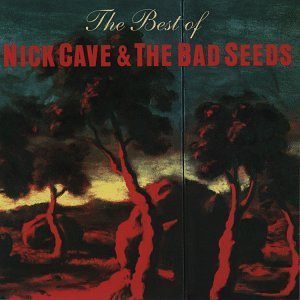Label: Mute Format: 2CD
 Diamanda Galás has never been timid about exploring the darkness and horror of her chosen territories. She’s been doing it for some years and these latest recordings are no exception. Defixiones, Will and Testament is rooted in Armenian, Assyrian and Greek genocides carried out by Turkey between 1914 and 1923. To construct this exploration she has borrowed texts from a variety of sources as well as using her own and, as if to accentuate the importance and power of the writings, there is little accompaniment apart from her piano, tape and minimal electronic treatments. As ever, it is the voice that is central to the delivery of the work.
Diamanda Galás has never been timid about exploring the darkness and horror of her chosen territories. She’s been doing it for some years and these latest recordings are no exception. Defixiones, Will and Testament is rooted in Armenian, Assyrian and Greek genocides carried out by Turkey between 1914 and 1923. To construct this exploration she has borrowed texts from a variety of sources as well as using her own and, as if to accentuate the importance and power of the writings, there is little accompaniment apart from her piano, tape and minimal electronic treatments. As ever, it is the voice that is central to the delivery of the work.
Much has been said about that voice’s range, all three and a half octaves of it, but it is what she does with this range that makes it a unique and formidable instrument. “Ter Vogormia”, which opens the first CD, finds her revelling in the liturgical power of an Armenian melody, reaching down into its depths and soaring out again. Set against a low-key electronic drone, her voice creates an eerie and unsettling experience, an ululating, keening call to the listener to share in her catharsis. From somewhere in the bowels of the recording a deep male voice answers briefly before Galás is aroused once more to passionate imploring. The language may not be familiar but as with other texts here an understanding of the actual words is not entirely necessary, Galás’ voice conveys pain and anguish, sometimes aided by her turbulent approach to piano. On the reprise she summons up a portentous vibrato which remains in the lower regions of her range and provides a satisfying finale to the piece.
The penultimate track, “The Eagle Of Tkhuma”, features spoken word against a somewhat laboured chorale which prepares the way for the incantations of “Orders From The Dead”. Galás switches tongues and spares no one the detail of many deaths while a muffled drum beats in an act of remembrance translated through the chill tones of accusation.
The second CD is taken from ‘live’ recordings and features texts from writers whose work may be united by similar concerns such as loss and exile. The words of Vallejo, Nerval, Bet-Oraham and Celan are given voice once more with suitably minimal embellishment. Her working of Celan’s poetic incantation “Todesfuge” attempts to convey the horror of the death camps whose inmates drink “Black milk of daybreak we drink it at sundown/we drink it at noon an the morning we drink it at night/we drink and we drink it”.
She uses Celan’s original German text which is obviously a more apt and fitting medium, though I do feel she slightly overdoes the drama. Part of Celan’s approach was to construct imagery which was musical but also attempted to distance itself from the awfulness of the subject. Not an easy balance to maintain and I’m not convinced Galás does. Nevertheless, it is gratifying to hear the text revived.
Galás then shifts her focus from the holocaust to the Blues with a sense of complete appropriateness. On “See That My Grave Is Kept Clean” her voice moves from harsh rasping to otherworldly lamentation imbuing the images with more terror than any other version I’ve heard. When she asks for that “one last favour” it is not so much a request as a threat of terrible, unnamed consequences if the grave is not kept clean.
 Galás’ fixation with the grave continues on another double CD, La Serpenta Canta, a live set that pitches her vocals against that sometimes stark, sometimes thunderous piano. The grave is again the focus for a storm of histrionic blues on “Ain’t No Grave Can Hold My Body Down”, however it’s not death that chills the marrow on this set but life itself. She takes Hank Williams’ “I’m So Lonesome I Could Cry”removing it about as far as possible from any previous interpretations and laying bare its utterly comfortless condition. Her voice, eschewing the melody, stretches out in sustained and chilling waves, even approximating the hoarse tone of a ghostly harmonica at one point. It is an extraordinary treatment and not an easy one to forget.
Galás’ fixation with the grave continues on another double CD, La Serpenta Canta, a live set that pitches her vocals against that sometimes stark, sometimes thunderous piano. The grave is again the focus for a storm of histrionic blues on “Ain’t No Grave Can Hold My Body Down”, however it’s not death that chills the marrow on this set but life itself. She takes Hank Williams’ “I’m So Lonesome I Could Cry”removing it about as far as possible from any previous interpretations and laying bare its utterly comfortless condition. Her voice, eschewing the melody, stretches out in sustained and chilling waves, even approximating the hoarse tone of a ghostly harmonica at one point. It is an extraordinary treatment and not an easy one to forget.
Its equal in terms of desolation is The Supremes’ “My World Is Empty Without You” where Galás carefully enunciates each word to ensure that the message is relayed precisely. Her piano underpins the hurt with cascades of harsh, occasionally brittle and unstable sounds. Not what Holland-Dozier-Holland had in mind perhaps. If loneliness and desertions are fruitful territory for her then Ornette Coleman’s “Lonely Woman” is an apposite choice for her to mine the core of its misery.
What makes this song selection so fascinating, apart from her voice, is the range of material she has chosen to interrogate, and I think that’s the correct word. From the Blues, Soul, Motown, Jazz and Country’n’Western she has managed to extract meanings that may have become interred through ages of familiarity and popularity. She re-examines these songs in the same ways that she explores the texts on Defixiones and brings a sense of re-discovery to the listener. It is rarely comforting but it is always compelling and cannot be ignored.
-Paul Donnelly-



